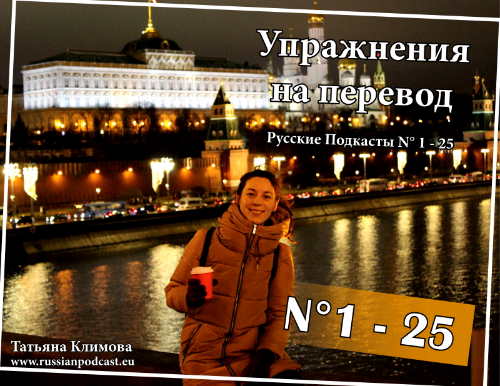Перевод на изучаемый язык – идеальное упражнение для закрепления лексики, грамматики и синтаксиса. В бесплатном подкасте N°402. «Демократия а Афинах», вы узнаете много политической лексики (полную транскрипцию можно прочитать в Клубе Дача). А теперь давайте посмотрим, как хорошо вы ассимилировали её. Переведите эти фразы с английского (или французского) языка на русский, а потом посмотрите ответы ниже.
Translating into the target language is a great exercise for consolidating vocabulary, grammar and syntax. In the free podcast N°402. “Democracy in Athens”, you will learn a lot of political vocabulary (the full transcription can be read in the Dacha Club). Now let’s see how well you have assimilated it. Translate these phrases from English (or French) into Russian, and then look at the answers below.
1. “Democracy” in Greek means “people power”.
2. Athenian democracy existed from 594 BC to 321 BC.
3. Solon gave the right to vote to ordinary citizens.
4. In Athens, all free citizens had the right to vote.
5. Women, slaves and metics could not vote.
6. In the polis, a third of citizens held government positions.
7. Almost all positions were chosen by lottery.
8. The People’s Assembly met every 8-9 days.
9. In Athens there was a jury trial.
10. Only 15% of the population of Athens voted.
11. Women and slaves could not make political decisions.
12. Women did not participate in government.
13. Slaves in Athens also had rights. For example, they could get married.
14. Women took care of the house and children. They could not leave the house alone.
15. However the Athenian women could get a divorce and even take their dowry back.
1. Démocratie en grec signifie « pouvoir du peuple ».
2. La démocratie athénienne a existé de 594 avant notre ère à 321 avant notre ère.
3. Solon a donné le droit de vote aux citoyens ordinaires.
4. A Athènes, tous les citoyens libres avaient le droit de voter.
5. Les femmes, les esclaves et les métèques ne pouvaient pas voter.
6. Dans la polis, un tiers des citoyens occupaient des postes gouvernementaux.
7. Presque tous les postes étaient tirés au sort.
8. L’Assemblée populaire se réunissait tous les 8 à 9 jours.
9. A Athènes, existait un tribunal des jurés.
10. Seulement 15 % de la population d’Athènes votait.
11. Les femmes et les esclaves ne pouvaient pas prendre de décisions politiques.
12. Les femmes ne participaient pas au gouvernement.
13. Les esclaves d’Athènes avaient également des droits. Par exemple, ils pourraient se marier.
14. Les femmes s’occupaient de la maison et des enfants. Elles ne pouvaient pas quitter la maison seules.
15. Mais les femmes athéniennes pouvaient divorcer et même reprendre leur dot.
Готово? Теперь вы можете посмотреть правильные ответы!
Вам понравилось это упражнение? Тогда смотрите упражнения на перевод к подкастам N°1-25 и N°26-50.
Ready? Now you can check the correct answers!
Did you enjoy this exercise? Then see the translation exercises for podcasts N°1-25 and N°26-50.
1. Демократия на греческом значит «власть народа».
2. Афинская демократия существовала с 594 года до нашей эры по 321 год до нашей эры.
3. Cолон дал право голосаобычным гражданам.
4. В Афинах право голоса имели все свободные граждане.
5. Женщины, рабы и метэки не могли голосовать.
6. В полисе треть граждан занимали государственные должности.
7. Почтивсе должности выбирались по жребию.
8. Народное собрание собиралось каждые 8-9 дней.
9. В Афинах существовал суд присяжных.
10. Голосовали только 15% населения Афин.
11. Женщины и рабы не могли принимать политические решения.
12. Женщины не участвовали в управлении государством.
13. Рабы в Афинах тоже имели права. Например, они могли жениться.
14. Женщины занимались домом и детьми. Они не могли выходить из дома одни.
15. Но афинянки могли развестись и даже забрать своё приданое.








